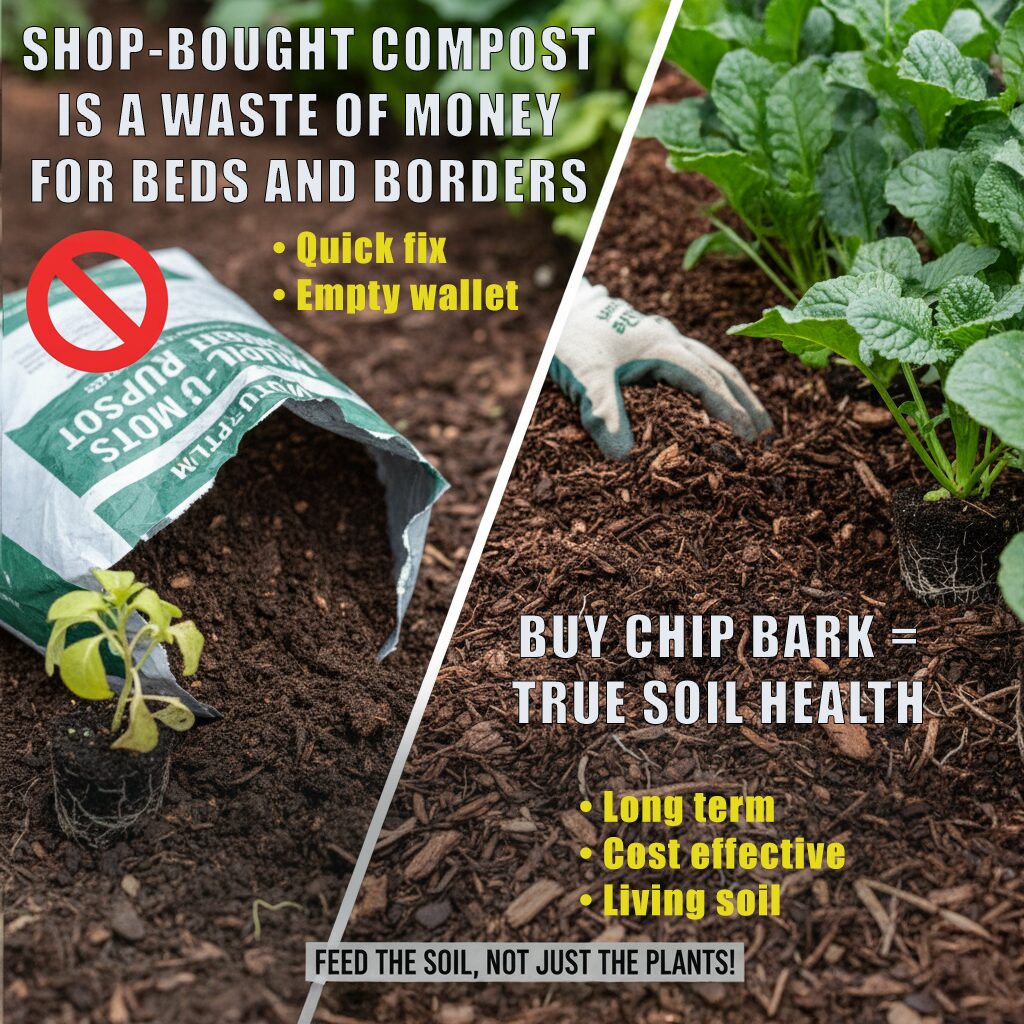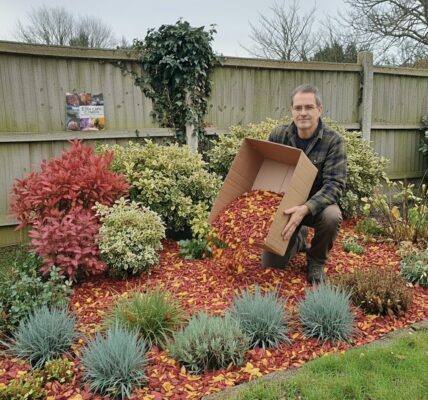Stop wasting your money buying multi-purpose compost for borders

The gardening industry does not tell us everything about that expensive bag of shop-bought multi-purpose compost! It’s not like home-made compost and certainly is not a long-term soil amendment; it’s a quick fix that promotes a dependency cycle. This is the ultimate “feed the plant, not the soil” deception.
Look closer at the label—most of these multi-purpose composts contain a hefty dose of plant food, which provides a glorious but fleeting six-week nutrient boost. After that initial rush, your plants are starving, and what do you do? You buy more bags or reach for synthetic fertilisers.
This process completely bypasses the real goal of healthy gardening: building a robust, living soil ecosystem that feeds itself. It’s an unsustainable, high-cost habit.
The power of wood chip mulch
The path to true soil health is simpler, cheaper, and far more effective. Forget the annual frantic digging that destroys the precious soil structure. Instead, grab a fork and dig just once to gently loosen seriously compacted ground, then put the fork away for good.
The key to rich, fertile soil is to purchase and apply a generous layer of aged chipped bark as a thick, protective mulch. This material doesn’t just block weeds; it slowly decomposes on the surface, feeding the vital fungi, microbes, and earthworms beneath. It also works wonders on improving the workability of heavy clay soil and water retention within sandy soil.
A common concern is that fresh bark chips can temporarily reduce soil nitrogen. When microbes decompose this fresh wood, they consume nitrogen from the soil, which can deprive plants of nutrients. However, this nitrogen deficiency is mostly limited to the top layer of soil, benefiting established plants by suppressing weeds, and has no long-term negative impact if the chips are left as a top dressing.
You can further avoid this minor surface issue by using only aged chips or by not mixing fresh chips into the soil. The decomposition process is generally only problematic if fresh chips are incorporated below the surface. Left on top, these soil engineers do the work for you, naturally improving drainage, aeration, and fertility over time. You’re no longer paying for a temporary fix; you’re investing in an ever-improving, low-maintenance, and productive garden for years to come.
Stop enriching garden centres and start enriching your soil!mul




